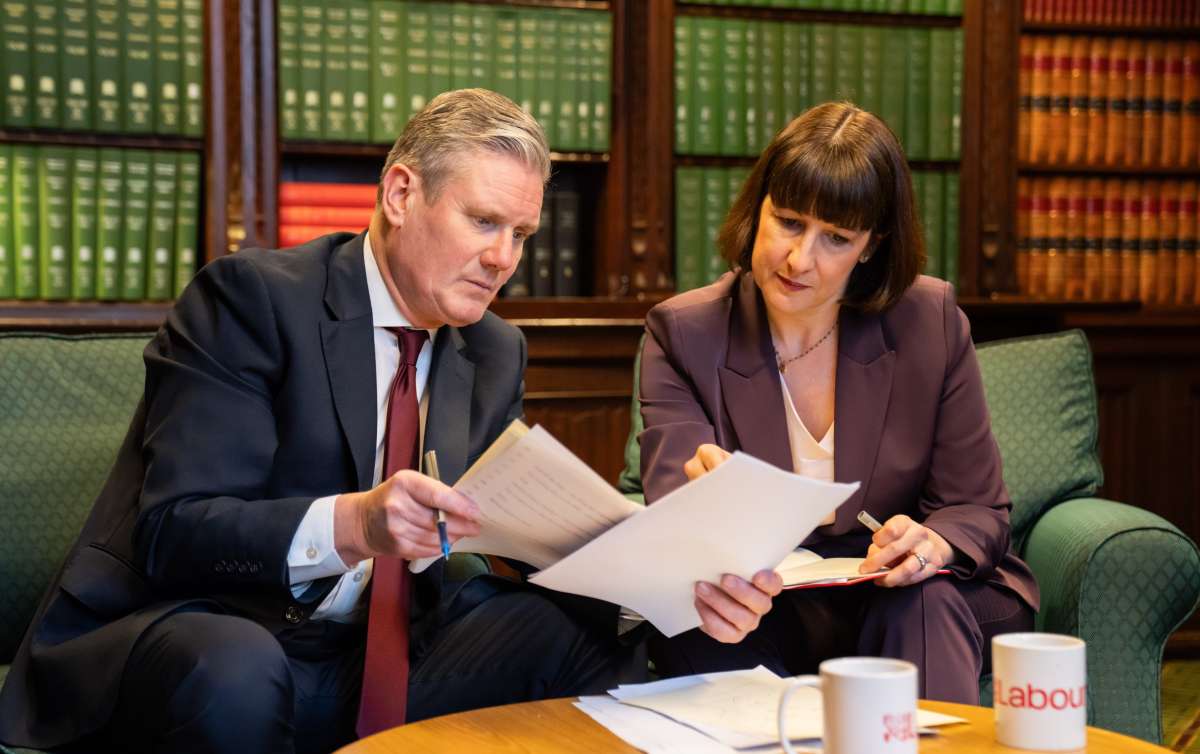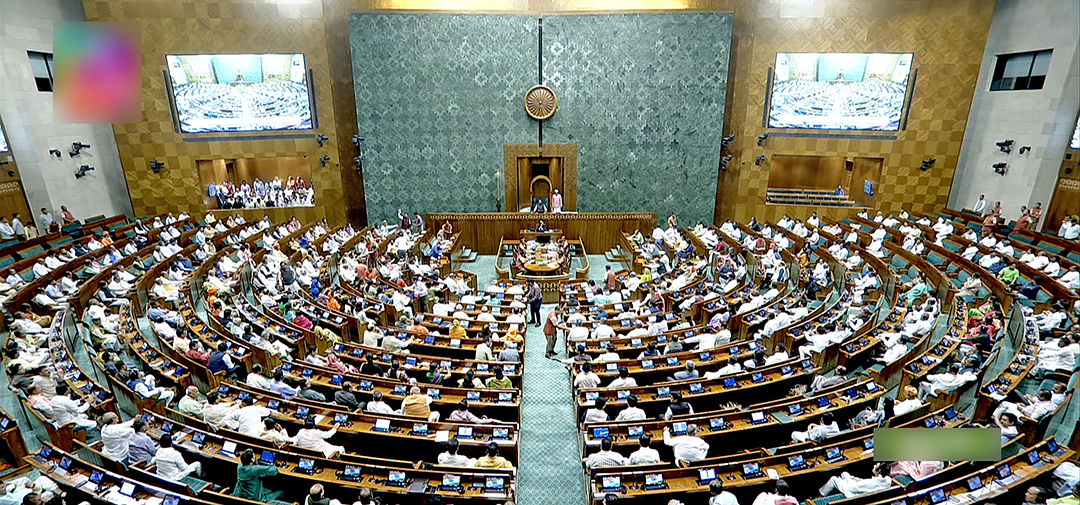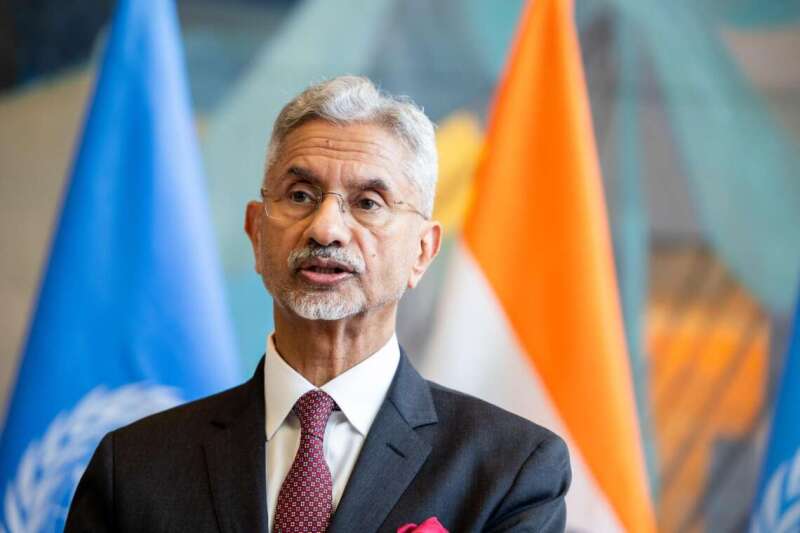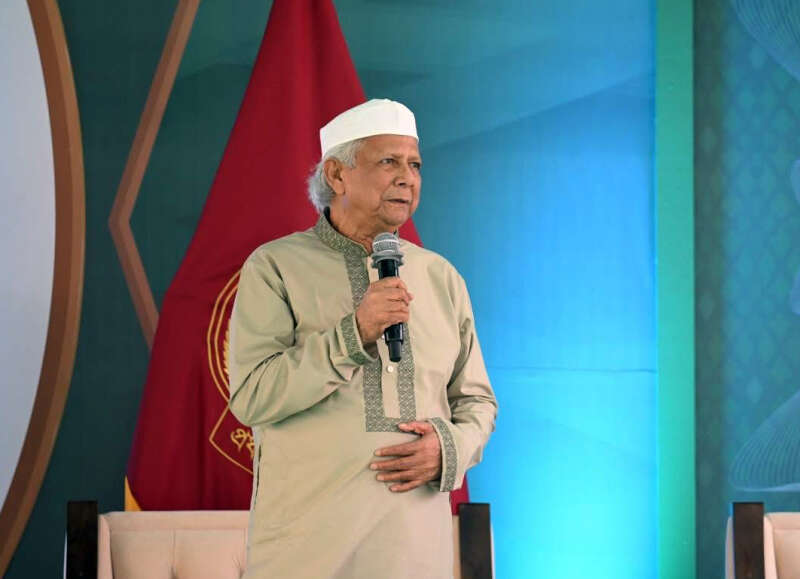Rachel Reeves says she would be “methodically” identifying ways to pay for existing pledges on the NHS and schools…reports Asian Lite News
Labour will not be able to “turn things around straight away” if elected, Rachel Reeves has said. The shadow chancellor did not rule out making cuts in some areas, saying Labour would inherit the worst economy since World War Two.
She said she would be “methodically” identifying ways to pay for existing pledges on the NHS and schools. The Conservatives said Labour “didn’t have a plan” to pay for their policies.
The BBC interview came a few days after Chancellor Jeremy Hunt set out the government’s tax and spending plans in his Budget, including a cut to National Insurance and an expansion of child benefit.
Hunt said the economy would “soon turn a corner” following sluggish growth which saw the country fall into a recession at the end of last year. Emulating Labour policies, he announced he would be replacing the non-dom tax status and extending the windfall tax on oil and gas companies.
Labour had previously said it would use the £2bn it expected to raise from these changes to pay for improvements in the NHS and breakfast clubs in schools.
However, Hunt has allocated these funds to help pay for the cut to National Insurance, a policy Labour has said it would not reverse if it came to power. Asked how Labour will now make up the shortfall in funding for some of its spending commitments, Reeves said she would be “going through all of the government documents to identify the funding stream to honour those commitments.
“We will do that in an orderly way.”
She also pointed to the party’s plans to tax private equity executives and introduce VAT and business rates in private schools. Reeves confirmed Labour would keep the government’s cuts to the higher rate of capital gains tax on the sale of second homes, announced by Hunt, saying the Office for Budget Responsibility had calculated that it would bring in revenue.
A general election is expected to take place later this year and with the party leading in the opinion polls, Labour’s tax and spending plans are coming under increasing scrutiny.
In his Budget, Hunt said he would retain a planned increase in day-to-day public spending at 1% above inflation every year until 2029. However, this means some departments could see significant budget cuts as some areas of public spending – such as schools and health – have their funding protected.
In the immediate aftermath of the Budget, the Institute for Fiscal Studies, a public finances think tank, accused the Conservatives and Labour of a “conspiracy of silence by not acknowledging the scale of the choices and trade-offs that will face us after the election” which would include “eye-wateringly tough choices” on public service spending.
Head of the IFS Paul Johnson said unprotected departments could see day-to-day cuts of £20bn.
Asked if Labour would have to implement real-terms cuts in some areas, Reeves said she was under “no illusions”adding: “It is clear that the inheritance a Labour government would have, if we do win the election, will be the worst since the Second World War. I have to be honest we are not going to be able to turn things around straight away but we will get to work on that.”
She said Labour would boost growth through its £7.3bn investment in a National Wealth Fund – aimed at increasing private investment in the zero-carbon economy.
On Sunday, the party announced that former Bank of England governor Mark Carney and Barclays boss C. S. Venkatakrishnan would sit on a taskforce to advise Labour on how to implement the fund.
The shadow chancellor also said her party’s workers’ rights package – which includes giving workers full employment rights from day one – was “pro-business and pro-worker” and would be in Labour’s manifesto.
Responding to Reeves’ interview, Chief Secretary to the Treasury, Laura Trott said Labour were unable to say how they would pay for their “unfunded spending commitments”.
“That’s because they don’t have a plan to pay for it and that means higher taxes, taking us back to square one.”
Rowntree to contest from Mid Sussex
The drummer from Britpop band Blur has been selected as the Labour candidate for Mid Sussex. Dave Rowntree said he was “absolutely thrilled” to be chosen.
Rowntree, who has played with the band since its formation in 1988, was elected as a Norfolk County Council councillor in 2017. A spokesperson for Mid Sussex’s Labour party said: “We think Dave will be an excellent and a very successful candidate.”
Blur has had many hits including Parklife and Girls & Boys. In 2012 the group received a Brit Award for outstanding contribution to music. “Dave vows to provide the energy and vision the area so desperately needs,” the local Labour Party said.
Rowntree had also previously been the Labour candidate for the Cities of London and Westminster constituency. In the 2019 general election the Conservative Party received 53.3% of the votes in Mid Sussex with Mims Davies being elected as MP.
ALSO READ: Ukraine should negotiate to end Russia war, says Pope














